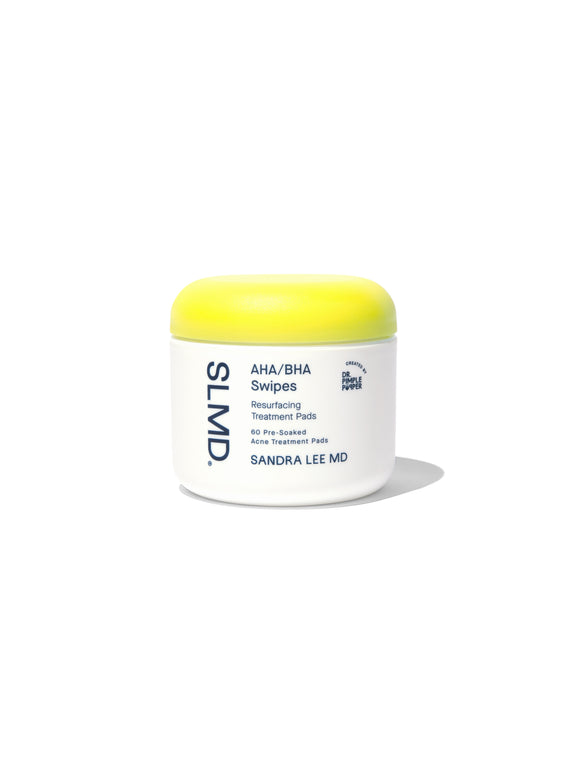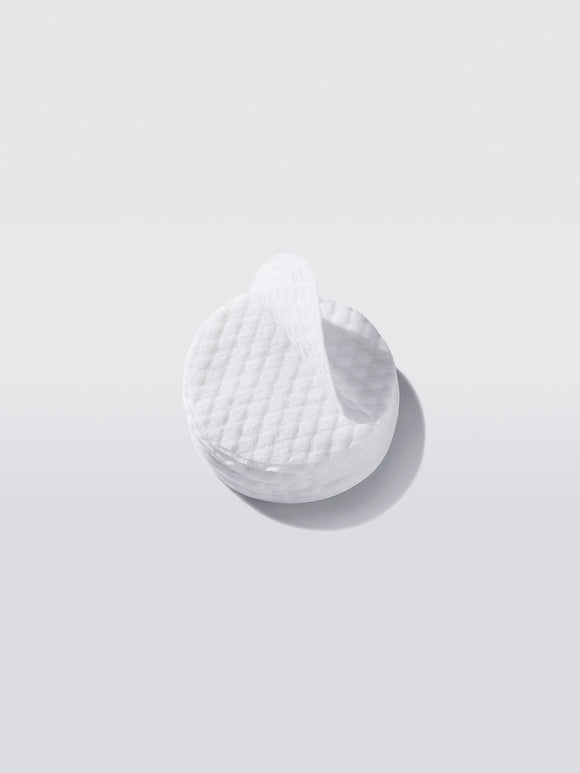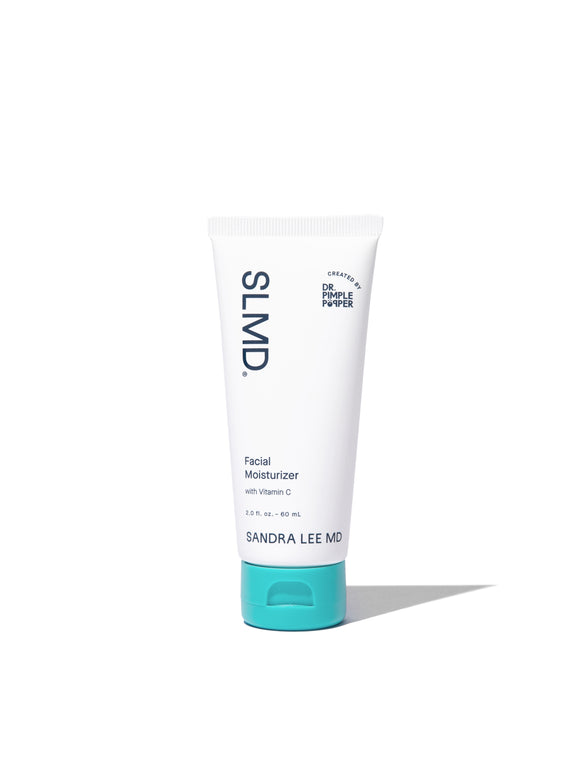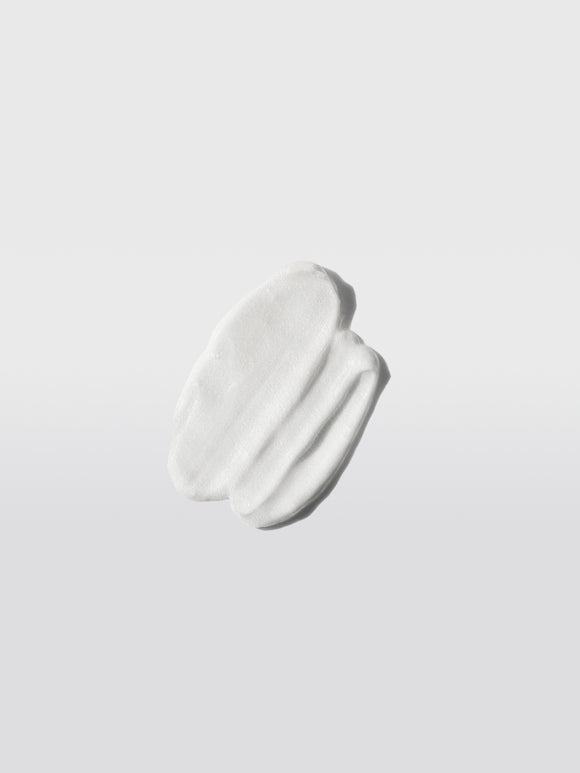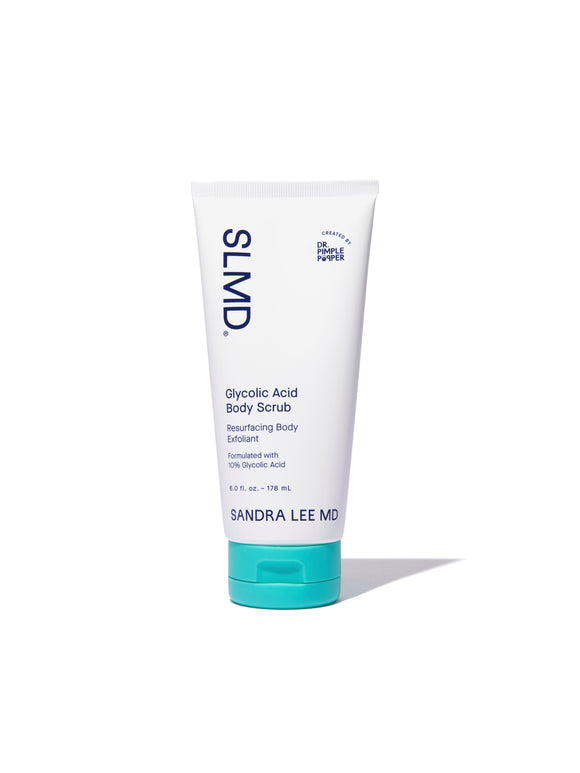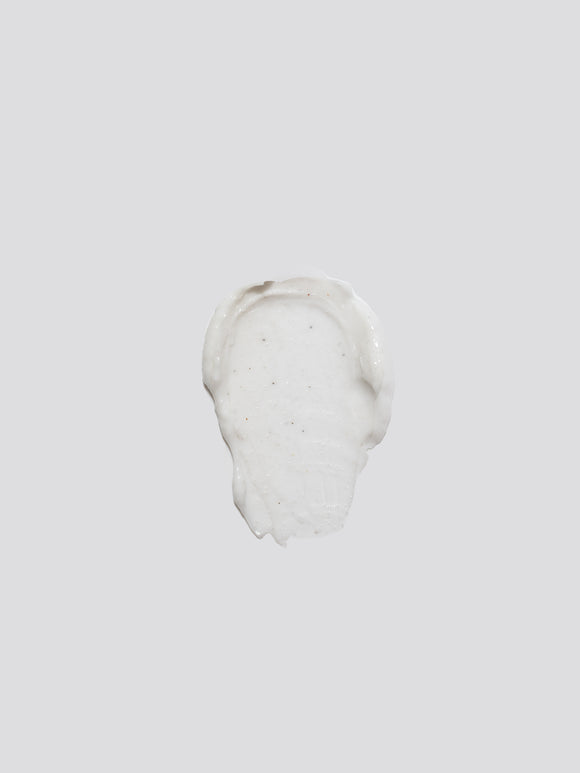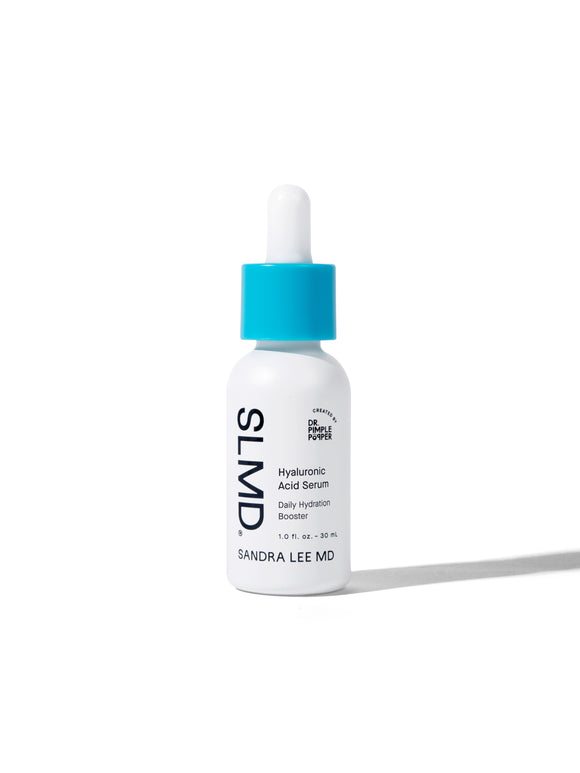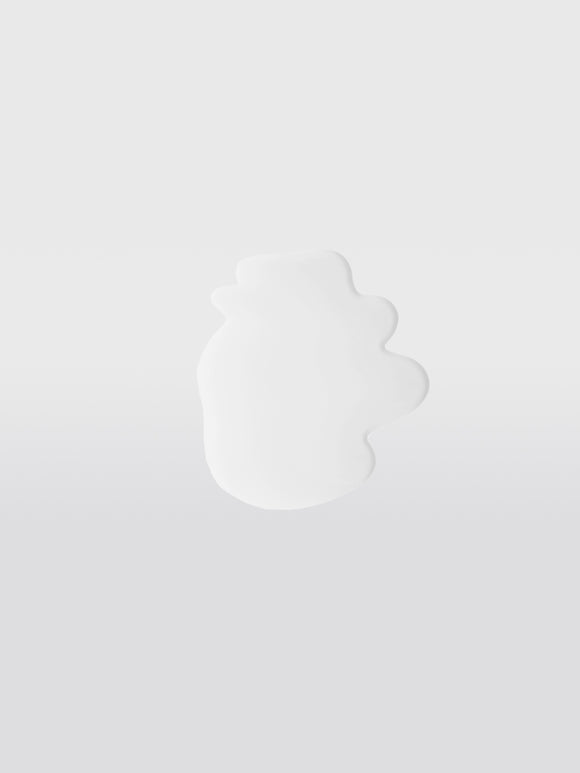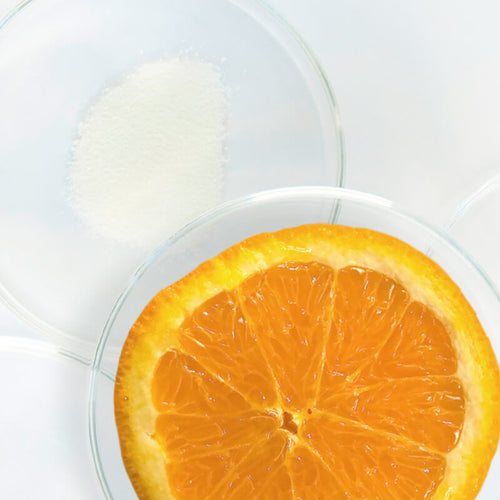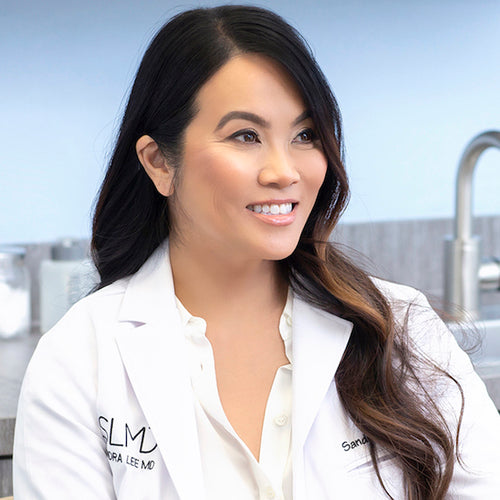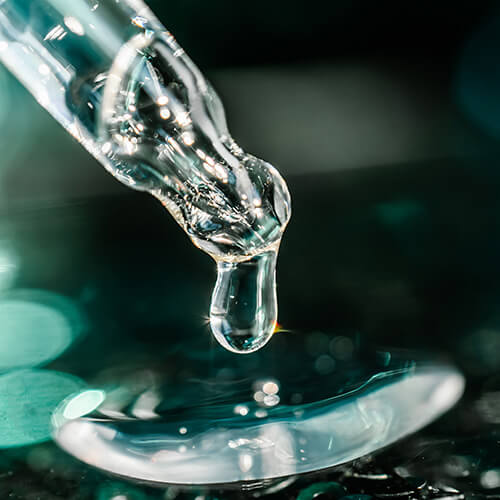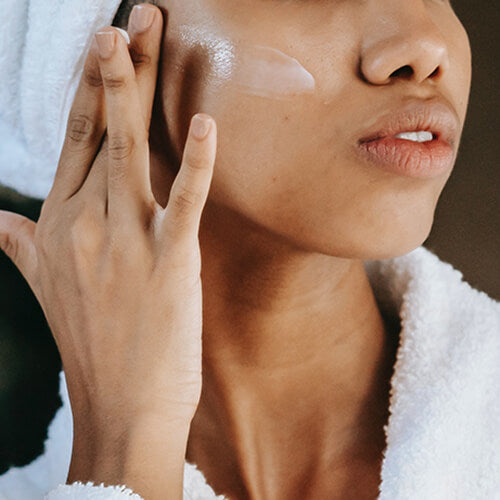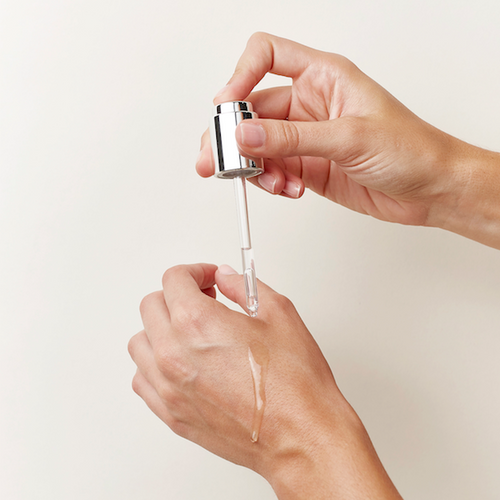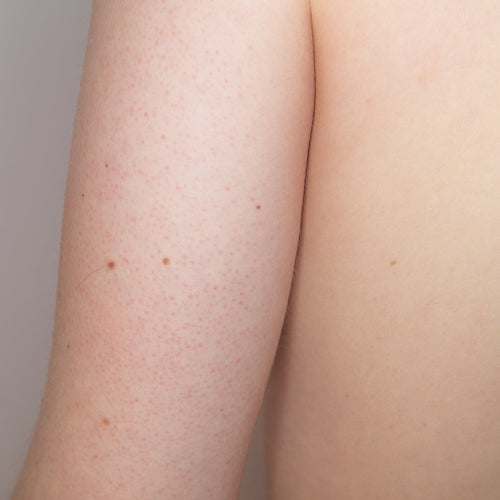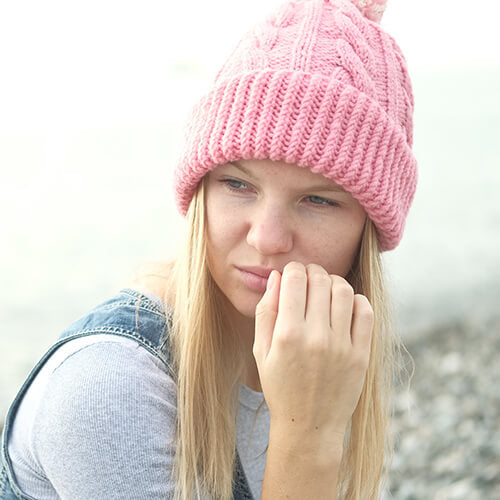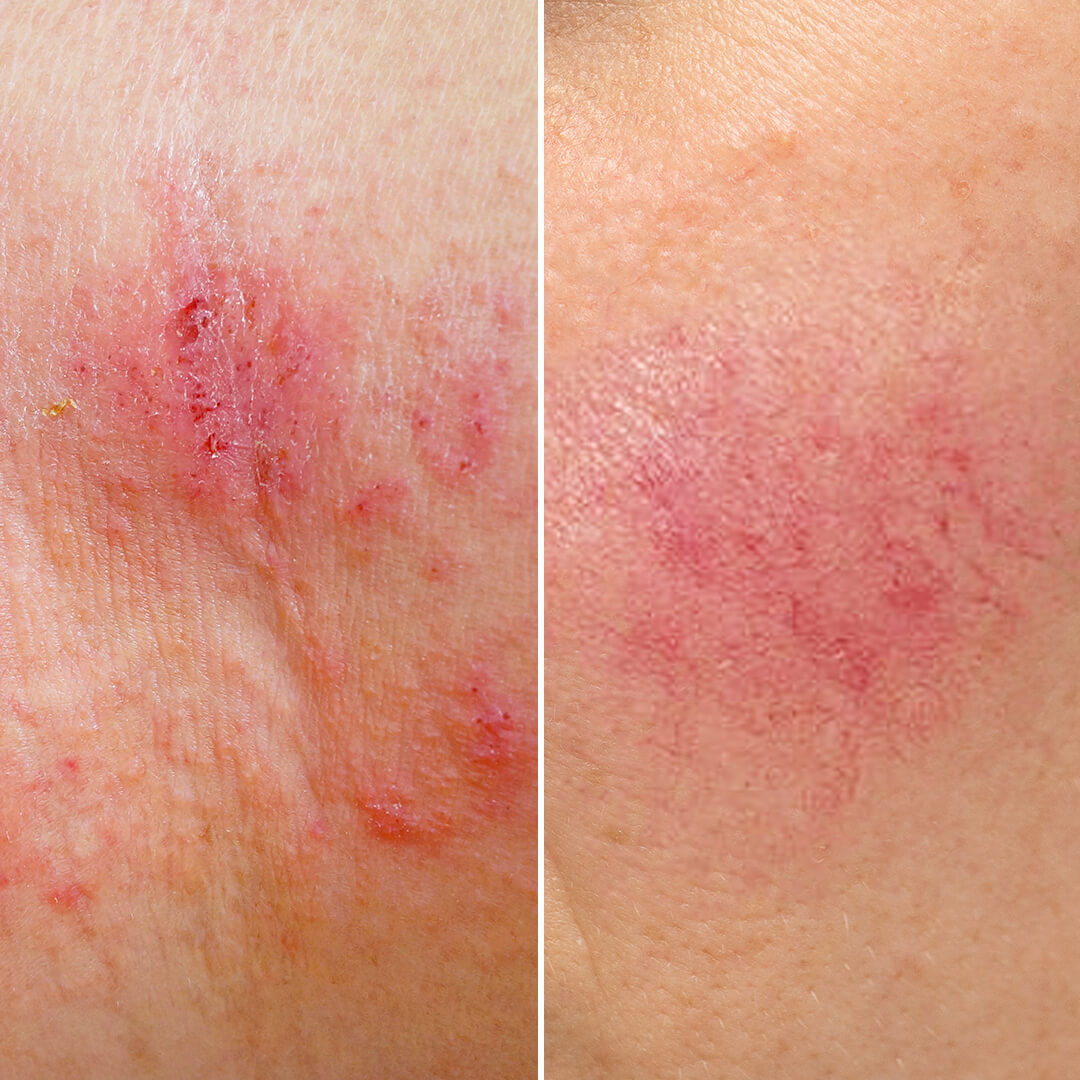
Eczema vs. Rosacea: What's the Difference?
Eczema and rosacea are two of the most common chronic inflammatory skin conditions in the U.S. These disorders both cause red, irritated skin — so how do you tell the difference between eczema and rosacea? We turned to board certified dermatologist Dr. Sandra Lee (aka Dr. Pimple Popper) for answers.
Published:
5 minute read
Two of the most common chronic skin conditions in the U.S. are eczema and rosacea — both suspected to have ties to inflammatory dysfunction. These disorders have a lot in common, including intermittent flare-ups caused by both known and unknown triggers, plus red, irritated skin.
So how do you tell the difference between eczema and rosacea? We turned to board certified dermatologist Dr. Sandra Lee (aka Dr. Pimple Popper) for answers.
What is eczema?
People of all skin types and ethnicities experience atopic dermatitis (aka eczema), an inflammatory skin disorder which affects more than 30 million Americans. It often peaks in childhood, and cases have been steadily rising over the last two decades. Studies have shown that childhood eczema strikes boys and girls fairly equally, but adult women tend to get it more often than men.
Eczema typically presents with a dry, red, itchy rash that may be scaly or bumpy, with fluid-filled blisters. Scratching can cause patches of eczema to scab over. Atopic dermatitis most often occurs on the inside of the elbows and knees, the hands, feet, upper chest and neck, and sometimes on the face.
What causes eczema?
Scientists aren’t sure what causes atopic dermatitis, but the prevailing theory is that it’s the result of a genetic variation that prevents healthy skin barrier function. Recent research points to a mutation in the gene that produces a protein called filaggrin, which is essential for binding strands of keratin together. As we’ve explored before, keratin is one of the most important substances that make up the skin barrier.

How do you treat eczema?
Since there is no known cure for eczema, doctors focus on helping patients manage their symptoms. The most common treatments include:
- Lifestyle changes: avoiding dietary triggers, bathing/cleansing in warm (not hot) water
- Skincare: keeping skin moisturized with products that support skin barrier function
- Topical medications: OTC hydrocortisone, prescription emollients, and steroid creams
- Oral/injectable medications: steroids, biologics (more targeted immunosuppressants)
What is rosacea?
It’s estimated that more than 16 million Americans experience some form of rosacea, an inflammatory condition that primarily affects the face. The disorder typically occurs in adults over 30 and is more common in women, though men tend to experience more pronounced symptoms.
Rosacea is characterized by redness or flushing, mainly on the central forehead, nose, cheeks and chin, that comes and goes. Oftentimes it causes papules and pustules that can resemble acne. Rosacea can also lead to skin thickening, especially on the nose, known as rhinophyma. Tiny blood vessels may be visible, which is called telangiectasia, or couperose skin. About half of people with rosacea also experience eye dryness and redness.
What causes rosacea?
Though the exact causes of rosacea remain unknown, recent research has shown a complex interplay between a host of factors. Scientists are currently examining the link between rosacea and a number of physiological processes, including:
- Genetics — variations in the genome that may increase susceptibility Innate immune system — irregularities in the body’s first line of defense against pathogens
- Neurovascular system — malfunctions in the interaction between our nervous system and blood vessels
- Microbial imbalance — reactions to bacteria and microscopic mites typically present in skin

How do you treat rosacea?
While there is currently no cure for rosacea, there are a variety of treatment options available to help control the symptoms, including:
- Lifestyle changes: avoiding triggers like sun exposure, stress, certain foods
- Skincare: irritant-free products that support the skin barrier, plus sunscreen
- Light and laser therapy: intense pulsed light (IPL), pulsed dye laser (VBeam)
- Topical medications: retinoids, ivermectin (an antiparasitic), metronidazole (an antibacterial)
- Oral medications: antibiotics, alpha- and beta-blockers (to regulate flushing)
What skincare is best for people with eczema or rosacea?
Because every patient is unique, it’s important to consult with your dermatologist if you suspect you have a chronic skin condition like eczema and rosacea. Dr. Lee always suggests a tiered approach for managing any skin concerns: start with over-the-counter solutions, then move to stronger treatments — including prescription options — if necessary.
Here are Dr. Lee’s top suggestions for choosing skincare for sensitive skin that’s prone to inflammation:
- Bathe/cleanse with warm water (not hot). Hot water can trigger rosacea flares, and cause your skin to actually dehydrate, making it drier and damaging the skin barrier.
- Avoid harsh physical scrubs (like nut shells, sugar, coffee grounds). These can cause micro tears which can lead to infection that makes rosacea and eczema worse.
- Use glycolic acid carefully (start slow and watch for sensitivity). Studies have shown that this AHA can alleviate some of the symptoms of rosacea and eczema, but consult your doctor if you have questions. A few to try from SLMD Skincare:
- AHA/BHA Swipes: pre moistened soft cotton rounds with a blend of alpha hydroxy acids
- Glycolic Acid Body Scrub: a dual scrub that contains both glycolic and lactic acid to gently smooth body skin
- Glycolic Acid Body Lotion: exfoliates dry, scaly body skin and also locks in moisture with anti-inflammatory shea butter
- Support the skin’s natural barrier function. Keep skin hydrated and moisturized with nourishing ingredients. Dr. Lee suggests these products from SLMD:
- Facial Moisturizer: a non-occlusive moisturizer with added vitamin C
- Hyaluronic Acid Serum: also contains squalane, so it hydrates and moisturizes with ingredients very similar to substances found naturally in skin
- Calm inflammation from eczema with an over the counter hydrocortisone cream, which can typically be used for up to 7 days to treat eczema (but is not recommended for rosacea treatment).
Dr. Lee’s last word
Eczema and rosacea are two of the most common inflammatory skin conditions that I treat in my practice. Though not life threatening, these disorders can be really disruptive and impact a patient’s self-esteem. But the good news is that we have a host of treatment modalities that can manage both of these conditions. I always tell my patients that with chronic skin conditions, maintaining a healthy skin barrier and avoiding triggers can go a long way toward managing symptoms. Plus, new research is showing a lot of promise in getting to the bottom of what causes rosacea and eczema, which will certainly lead to new solutions in the future.
—Dr. Sandra Lee



